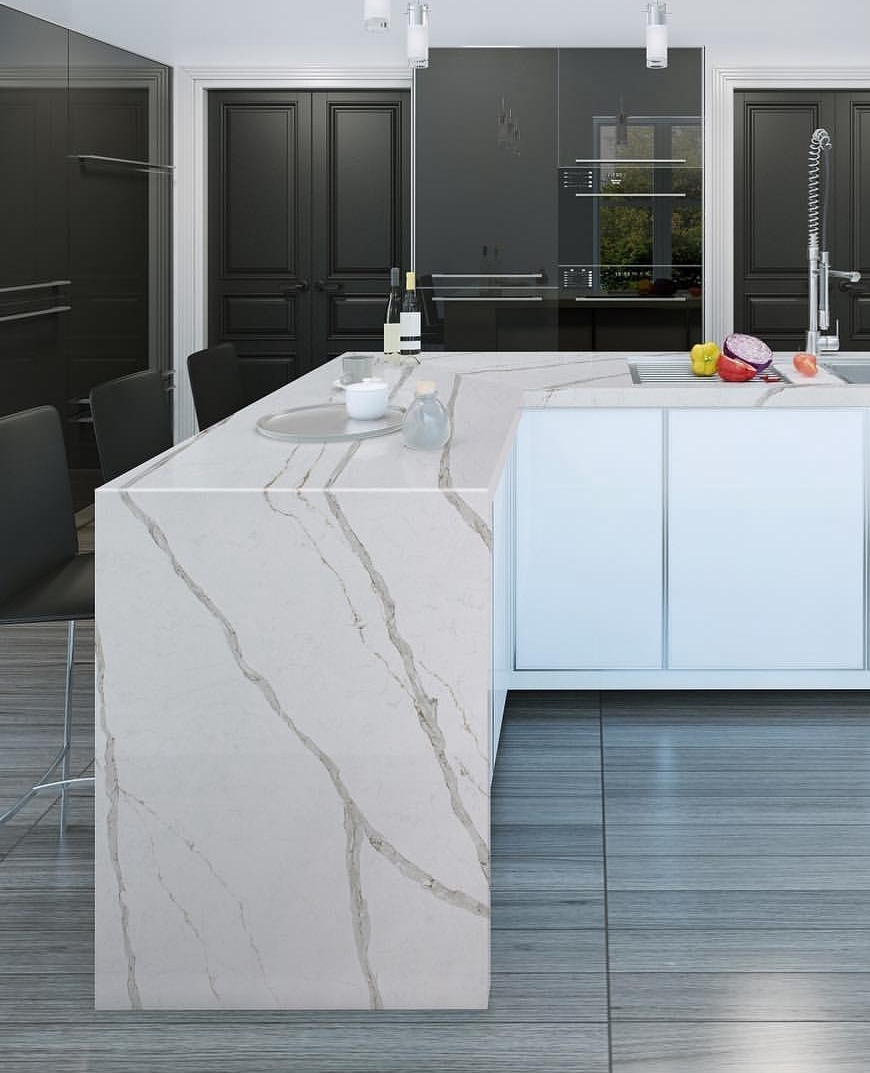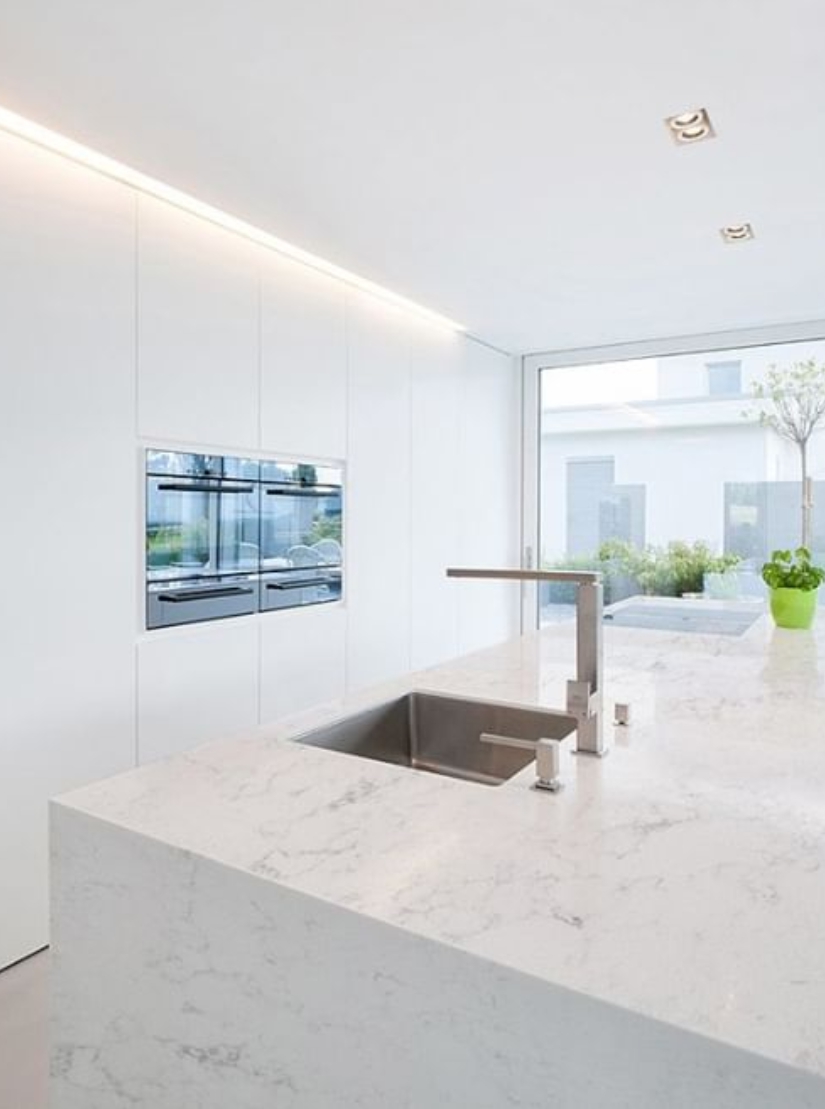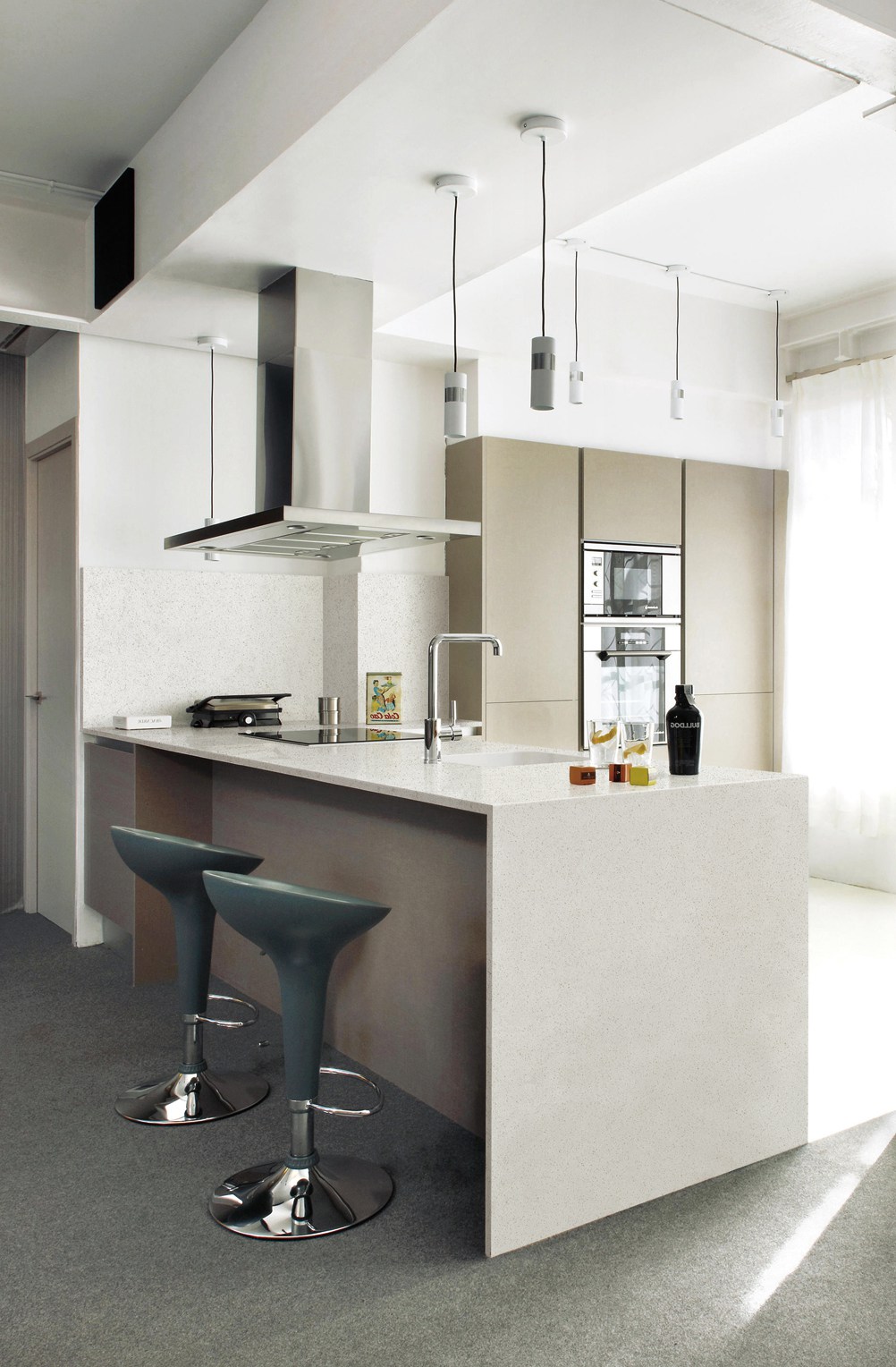Quartz stone is a large plate pressed by a special machine under certain physical and chemical conditions. Its main material is quartz. Because it is a combination of stones, it is harder, more wear-resistant, high-temperature-resistant, and resistant to penetration than ordinary stones, and the subsequent maintenance work is also relatively simple. As time goes by, quartz stone will also have various problems.
Although quartz stone, the most commonly used material for kitchen countertops, has the advantages of other materials, its frequency of use as a kitchen countertop may be higher than any of our household items, so you must learn some maintenance tips to make the kitchen countertop last longer.
Avoid placing high-temperature objects directly or for a long time on the quartz countertop
Quartz has good heat resistance and will not be scorched, deformed, or dented. It is important to avoid local overheating of the countertop. Materials have the characteristics of thermal expansion and contraction. Local overheating will cause the countertop to expand locally, resulting in cracks. Please note that you should avoid grilling the countertop with an open flame and avoid rotating high-heat utensils (such as boiling hot pots, hot water utensils, etc.) directly on the countertop. It is recommended to use pot mats with good heat insulation performance or pot mats that can dissipate heat. Temperature is not the direct cause of damage to the countertop. Materials have the characteristics of thermal expansion and contraction. Local overheating often causes accidental damage to the material. Avoid overheating of the countertop during use.
Do not use super-hard sharp objects to forcefully scratch the surface of quartz
Quartz is a high-hardness composite material with high scratch resistance. It will not be scratched or worn under normal use. It is important to avoid using super-hard sharp objects to forcefully scratch the countertop, such as diamonds, sandpaper, broken glass, broken ceramics (including sintered particles that may exist at the bottom of inferior ceramic vessels), high-hardness alloy knives and high-hardness tools, etc.
Keep the surface of the quartz stone as clean as possible
Because the water contains bleach and scale, if it stays in the water for too long, the color of the countertop will become lighter, affecting the appearance. If this happens, please use a clean towel to absorb the water and let it air dry for 4-5 hours.
Prevent strong chemicals from contacting the quartz surface
Quartz has long-lasting corrosion resistance, but it still needs to be avoided from contact with strong chemicals, such as: removers, metal cleaners, stove cleaners; do not contact with methylene chloride, strong acid cleaners, etc. If it accidentally comes into contact with the above items, immediately rinse the quartz surface with plenty of soapy water.
Remove scale
Remove the scale with a damp rag, scrape with a blade if necessary, and wipe with a dry cloth.
Remove most stains and dirt
Wash with soap or ammonia-containing detergent (such as dishwashing liquid).
Avoid heavy or frequent knocks on quartz
Although quartz contains a compound that improves the toughness of the material and has a relatively high impact resistance, it is still necessary to avoid heavy or frequent knocks on the countertop or using gravity to press the suspended parts of the countertop, especially the weak parts on the countertop, such as near the stove, near the basin, corners, joints, and the middle of large-span cabinets.


















